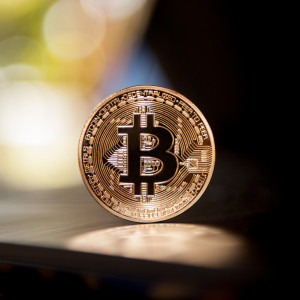Imagine trying to make a purchase online from a familiar website, only to be thwarted by a new policy announcing it only accepts Japanese yen or Chinese yuan. Or consider a vending machine that repeatedly spits back your crisp, clean dollar as unrecognizable. And what may be your reaction if you check your bank statement, only to see your balance represented in euros?
As odd and far-fetched as these dystopian scenarios may seem, they illustrate the dangerous path our nation is following in its befuddling and stone-age approach to regulating innovative digital assets like cryptocurrency. Since 2019 alone, transactions in cryptocurrency have risen by 300 percent, and the pace is accelerating because of its speed and convenience in bridging currency conversions in a global economy. Innovation brings volatility and speculation in any asset class, but the underpinning technology is proving its long-term staying power.
While other nations are promoting and welcoming the benefits of blockchain, the U.S. is doing just the opposite, handcuffing investors and businesses alike through a myriad of confusing, complex, and wholly inconsistent enforcement stockades while giving no regulatory clarity. If not addressed, it could spell disaster for America’s ability to compete and transact in the currencies of tomorrow.
Especially concerning is the consistent interference from the Securities and Exchange Commission (SEC) in its seemingly random affinity for treating some crypto as securities, making them subject to suffocating securities regulations and oversight. This bungling is perfectly illustrated in a current lawsuit, SEC v. Ripple Labs, which has potentially far-reaching implications related to the power of government regulatory authorities. But at its core, it serves as a reminder that the United States continues to be outpaced by other developed economies in establishing a safe and secure regulatory framework for digital assets.
The case revolves around the sale of XRP tokens, a digital currency that has been distributed by Ripple since 2013. Despite repeatedly declining every opportunity to definitively state that XRP is a security for years, allowing billions of these tokens to be traded on crypto exchanges worldwide, the SEC suddenly came to the conclusion that XRP is a security – and that Ripple and its executives should be forced to fork over $1.3 billion in fines. Why? According to the SEC’s filings, Ripple should have known they were selling an unregistered security for the last eight years, even though the SEC didn’t adopt that theory until December 2020.
If the logic behind the SEC’s lawsuit sounds circuitous, it’s because it is. While the SEC could not determine whether this cryptocurrency was a security, other nations that are further along in establishing a secure regulatory framework for digital currency were not afflicted by similar indecisiveness.
While the SEC dawdled, Japan, Singapore, Switzerland, the United Arab Emirates, and the United Kingdom had no problem concluding the obvious: XRP is a digital currency, not a security. Of course, those nations have a distinct advantage over the United States. All of them saw the need for establishing regulatory frameworks for digital currencies and preparing for an emerging economic asset.
Why, then, is the SEC pursuing Ripple Labs? Under the SEC’s logic, XRP has “no utility” as a currency but is merely an investment contract in Ripple. Defying that assertion are the users of XRP tokens around the world. The SEC’s filing of its complaint against Ripple seeking $1.3 billion in fines resulted in panic selling of XRP tokens, crashing their value, and suspension of trading by exchanges fearing SEC reprisal. Those holders of XRP tokens have no relationship with Ripple. Indeed, some had never even heard of the company.
If the SEC’s case against Ripple didn’t have such serious potential implications for the unchecked power of overreaching government regulators, the future of digital currency, and the constitutional guarantees of due process, this fiasco might be dismissed as theater of the absurd. The reality is the implications are dire and serious. They assault basic constructs of fairness and undermine the regulatory consistency needed to incentivize investment and facilitate economic growth.
SEC v. Ripple Labs isn’t just another example of regulatory overreach. At its core, it reveals that while the rest of the world – and American consumers – are embracing digital currency, the SEC’s failings elevate bureaucratic process over economic progress, which if unchecked could prove fatal to America staking its claim as a leader or major player in the currency of the future.
We now know the reason for years of dithering and indecisiveness at the SEC regarding cryptocurrency: they just don’t get it. And as long as they don’t understand it, they’ll remain incapable of establishing a safe and secure regulatory framework for digital currency.
We should all hope the courts rein in the SEC’s convoluted assertions and vindicate an American innovator like Ripple who was an unfair target of a regulator’s zeal to overstep its authority. Congress should also quickly catch up with competing countries and adopt a sound framework that limits regulatory abuse we’ve seen in the Ripple case. Such outcomes would be an enormous step forward on the path for America to lead in tomorrow’s global economy.

